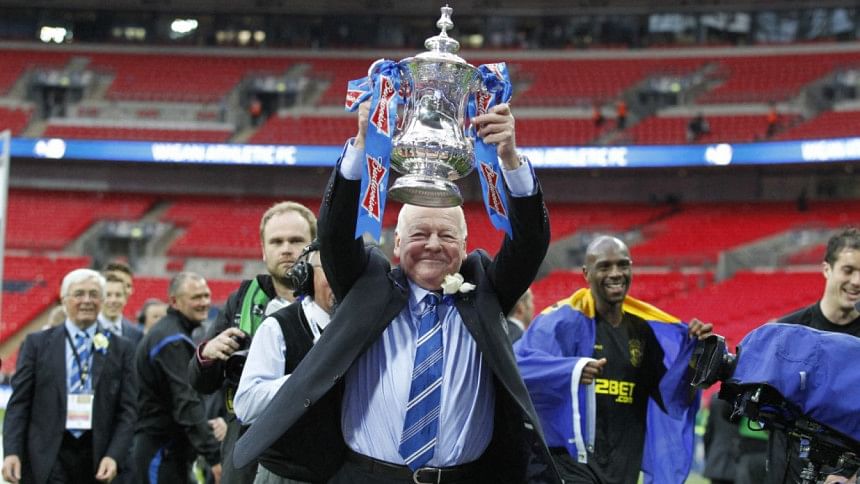The route to Europe through the FA Cup

With the Premier League taking a week-long break following a jam-packed festive season schedule, attention has turned to the English FA Cup, with a headline third-round fixture between record 14-time winners Arsenal and eight-time champions Liverpool today at the Emirates Stadium.
The FA Cup is the oldest knockout club competition in the world and it allows all clubs in the top four levels of the country's football (the Premier League and the three divisions of the English Football League) a chance to make it to the end of the road for a coveted chance to play at the Wembley Stadium.
The 20 Premier League clubs enter the competition in the third round.
So, what do FA Cup winners get other than the injection of cash?
The FA Cup winners are rewarded with a direct spot in the group stage of the UEFA Europa League. Even if the winners get relegated or are not playing in the top flight, they get to keep hold of their European place.
If the FA Cup winners finish inside the top four (which gives them group-stage entry into the UEFA Champions League) or fifth, which secure them a place in the Europa League, then the Europa League qualifying spot offered is given to the next highest-ranked finisher in the Premier League.
The latest case of a team ensuring European football despite finishing outside the coveted top five was when Arsenal secured a Europa League place by winning the FA Cup after finishing eighth in the league in the 2020-21 season.
The trophy count is also complemented with a cash prize. In the 2022-23 season, the champions received £2 million, while the runners-up took home half of that. The 2023-24 season will see an increase of that amount, with the champions reportedly set to take home £3.7 million from prize money alone.
The competition provides not just nostalgic value owing to memorable triumphs but vital injection of funds as well, especially for the clubs lower down the English football pyramid as the prize pool rewards in decreasing measures all the way down to the extra preliminary rounds at the start of the competition, a phase where even Level 9, 10 and lower-ranked teams of Level 8 battle it out for progression.
A recent case of that saw non-league side Marine's third-round clash with Premier League giants Tottenham Hotspur in 2021 save the club from financial ruin as it saw them earn north of £500,000 from prize money, television revenue, and sponsorship opportunities.
Despite lower-ranked sides having the chance for a shot at glory, the FA Cup has been dominated by top Premier League sides in recent seasons, with one of Manchester City, Manchester United, Chelsea, Liverpool or Arsenal winning 12 of the past 14 finals, with the other two being won by Roberto Martinez's Wigan Athletic in 2013 and Brendan Rodgers' Leicester City in 2021.
Wigan's win over City in 2013 was the last significant final upset, as Martinez's side were relegated from the Premier League that season despite their Wembley glory.
Cardiff City were the last team outside the top flight to reach the final, as the Welsh giants lost to Harry Redknapp's Portsmouth in 2008. The win gave Redknapp his first and only major trophy in a coaching career that has spanned almost four decades. He also led Portsmouth to the EFL League Two title, the second-tier of English football.
However, the last team to win the FA Cup from outside the top tier predates the Premier League, with Trevor Brooking's famous goal clinching the 1980 trophy for Second Division West Ham against holders Arsenal.

 For all latest news, follow The Daily Star's Google News channel.
For all latest news, follow The Daily Star's Google News channel. 







Comments